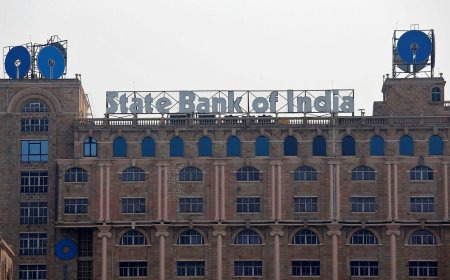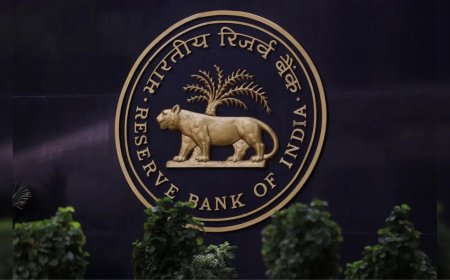India Drafts Emission Reduction Targets for Refineries and Textile Sector
The Centre has proposed emission reduction goals for PSU and private refineries along with textile manufacturers, aligning with India's climate targets. Learn more about the draft policy and its market impact.

New Delhi, June 25, 2025 — In a major push toward India’s climate commitments under the Paris Agreement and its net-zero 2070 goal, the central government has drafted an ambitious proposal to set emission reduction targets for both public and private sector refineries, as well as the energy-intensive textile industry. The Ministry of Environment, Forest and Climate Change (MoEFCC) is spearheading the initiative in coordination with the Ministry of Petroleum and Natural Gas and the Ministry of Textiles.
The draft framework, circulated earlier this week among key industry stakeholders, outlines a phased approach for refineries and textile manufacturing units to cap and reduce greenhouse gas (GHG) emissions through technological upgrades, process optimizations, and adherence to stricter emission norms.
Phased Emission Reduction Targets
According to officials familiar with the draft, the plan proposes sector-specific emission reduction goals, starting FY 2026-27. For refineries, the targets aim at reducing carbon dioxide equivalent emissions by 10–15% over five years. The textile sector, known for its substantial carbon and water footprint, will be mandated to cut emissions by up to 20% in the same timeframe.
A senior MoEFCC official said, “We are moving toward a performance-linked regulatory model. These targets are aligned with the Nationally Determined Contributions (NDCs), and the focus is not just on compliance but long-term sustainability.”
The targets will be finalized after consultations with the Indian Oil Corporation (IOC), Bharat Petroleum Corporation Ltd (BPCL), Reliance Industries, Nayara Energy, and top textile manufacturers such as Arvind Mills and Welspun.
Incentives and Penalties on the Table
The proposal also recommends a mix of incentives and penalties. Companies that exceed targets may qualify for carbon credits, subsidies for green tech adoption, and fast-track clearances. Conversely, non-compliance could invite financial penalties, reduced credit ratings, or caps on production expansion.
“This could be a game changer,” noted energy analyst Neeraj Shah of Equinox Capital. “By linking emission performance to financial and operational incentives, the government is signalling a shift from voluntary to performance-based climate action.”
Industrial Reactions Mixed
Initial responses from the private sector have been varied. While some companies welcomed the proposal as a necessary transition, others expressed concern over the feasibility and cost of compliance.
A senior executive from Reliance Industries commented anonymously, “We support climate goals, but the compliance timeline must consider technological maturity and financial implications, especially for large-capacity plants.”
The All India Textile Manufacturers Association (AITMA) also called for financial support mechanisms to facilitate transition, particularly for mid-sized units in Tier-2 cities.
Market Impact: ESG Gets a Boost
The move is expected to boost interest in environmental, social, and governance (ESG) investments. Analysts expect companies that proactively adopt the framework to see improved institutional investor confidence and potential re-rating of ESG scores.
“Textile and energy stocks with aggressive ESG compliance will benefit in the medium to long term,” said Pranav Sinha, equity strategist at Axis Securities. “Investors are increasingly factoring sustainability into valuations. We could see rerating in companies leading the green shift.”
Investor Outlook: Strategic, Not Just Sentimental
While short-term capital expenditure (CAPEX) could rise due to technology upgrades—like carbon capture, energy-efficient machinery, and water recycling systems—experts believe the long-term cost savings and investor goodwill could outweigh initial spending.
Furthermore, global supply chains are increasingly prioritizing low-emission suppliers, especially after the EU’s Carbon Border Adjustment Mechanism (CBAM) rollout. Indian companies complying with domestic emission norms would be better positioned for export.
Sonal Jha, sustainability lead at ThinkGreen Advisors, pointed out, “This draft is not just an environmental play; it’s a strategic move to make Indian exports more acceptable in carbon-conscious markets.”
Global Context and Policy Alignment
India’s proposal follows a global trend where governments are placing sector-specific emission limits. The U.S. EPA recently imposed tighter methane standards on oil & gas, while the EU is pushing member states toward carbon neutrality by 2050.
The Centre’s draft is aligned with India’s updated NDCs submitted to the UNFCCC, which include reducing the emission intensity of GDP by 45% by 2030, compared to 2005 levels.
What’s Next?
The draft will be open for stakeholder consultation until August 2025. Final guidelines are expected to be notified by December, with implementation beginning April 2026. Sector-specific roadmaps, monitoring mechanisms, and third-party audit norms will be finalized thereafter.
MoEFCC plans to hold industry roundtables across Mumbai, Surat, Chennai, and Delhi to gather input and feedback before locking the final contours of the policy.
India’s draft emission reduction framework for refineries and the textile sector marks a significant regulatory step toward climate accountability. While challenges remain in terms of technological readiness and financial burden, the long-term vision aligns with global trends and investor interests. Companies that adapt early may not only meet compliance goals but also reap strategic and reputational rewards.
What's Your Reaction?
 Like
0
Like
0
 Dislike
0
Dislike
0
 Love
0
Love
0
 Funny
0
Funny
0
 Angry
0
Angry
0
 Sad
0
Sad
0
 Wow
0
Wow
0












































































